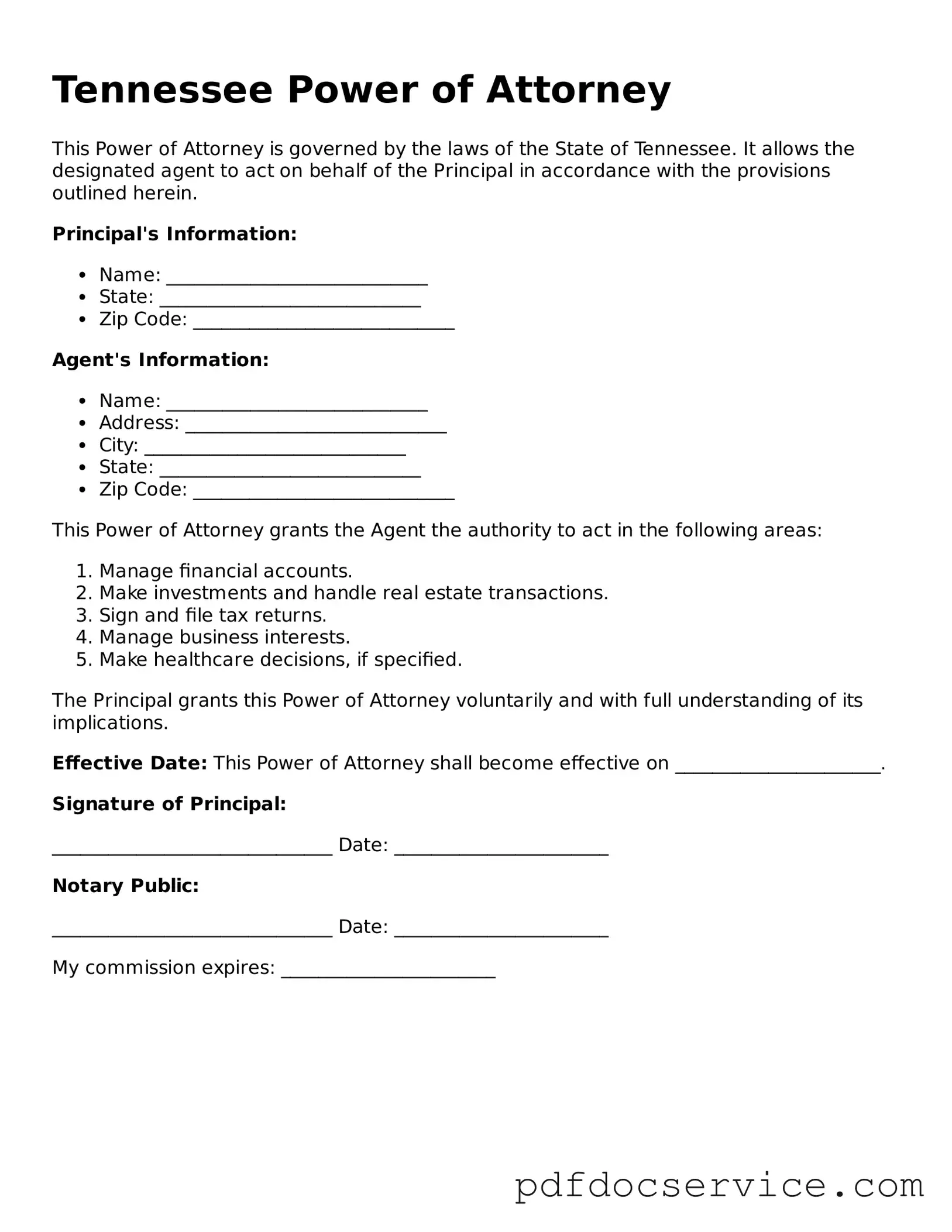What is a Power of Attorney in Tennessee?
A Power of Attorney (POA) in Tennessee is a legal document that allows one person (the principal) to grant another person (the agent or attorney-in-fact) the authority to act on their behalf. This authority can cover a wide range of decisions, including financial, legal, and healthcare matters, depending on how the document is drafted.
Why might someone need a Power of Attorney?
Individuals often create a Power of Attorney to ensure that someone they trust can manage their affairs if they become incapacitated or unable to make decisions. Common scenarios include:
-
Medical emergencies where the principal cannot communicate their wishes.
-
Traveling abroad and needing someone to handle financial transactions.
-
Planning for the future and ensuring that someone can make decisions if health declines.
What types of Power of Attorney are available in Tennessee?
Tennessee recognizes several types of Power of Attorney, including:
-
General Power of Attorney:
Grants broad authority to the agent to act on behalf of the principal in various matters.
-
Limited Power of Attorney:
Restricts the agent's authority to specific tasks or situations.
-
Durable Power of Attorney:
Remains effective even if the principal becomes incapacitated.
-
Healthcare Power of Attorney:
Specifically allows the agent to make medical decisions on behalf of the principal.
How do I create a Power of Attorney in Tennessee?
Creating a Power of Attorney in Tennessee involves several steps:
-
Choose a trusted individual to act as your agent.
-
Clearly define the powers you wish to grant.
-
Complete the Power of Attorney form, ensuring it meets Tennessee's legal requirements.
-
Sign the document in the presence of a notary public.
Does a Power of Attorney need to be notarized in Tennessee?
Yes, in Tennessee, a Power of Attorney must be signed in front of a notary public to be considered valid. This notarization helps ensure the authenticity of the signatures and the intentions of the principal.
Can I revoke a Power of Attorney in Tennessee?
Yes, you can revoke a Power of Attorney at any time as long as you are mentally competent. To do so, you should create a written revocation document and notify your agent and any relevant institutions that may have relied on the original Power of Attorney.
What happens if the principal becomes incapacitated?
If the principal becomes incapacitated and has established a Durable Power of Attorney, the agent can continue to act on their behalf without interruption. If a general Power of Attorney was created without the durable clause, it would become ineffective upon the principal's incapacity.
Can I appoint more than one agent in Tennessee?
Yes, you can appoint multiple agents in your Power of Attorney. You can designate them to act jointly, meaning they must make decisions together, or separately, allowing them to act independently. It's crucial to clarify this in the document to avoid confusion.
Are there any limitations to the authority granted in a Power of Attorney?
Yes, there are limitations. A Power of Attorney cannot grant authority for certain actions, such as making a will or making decisions after the principal's death. Additionally, you can specify any limitations in the Power of Attorney document itself to ensure your wishes are respected.
What should I do if I have further questions about my Power of Attorney?
If you have further questions about your Power of Attorney or need assistance in creating one, it is advisable to consult with a legal professional who specializes in estate planning or elder law. They can provide tailored advice based on your specific situation and needs.

